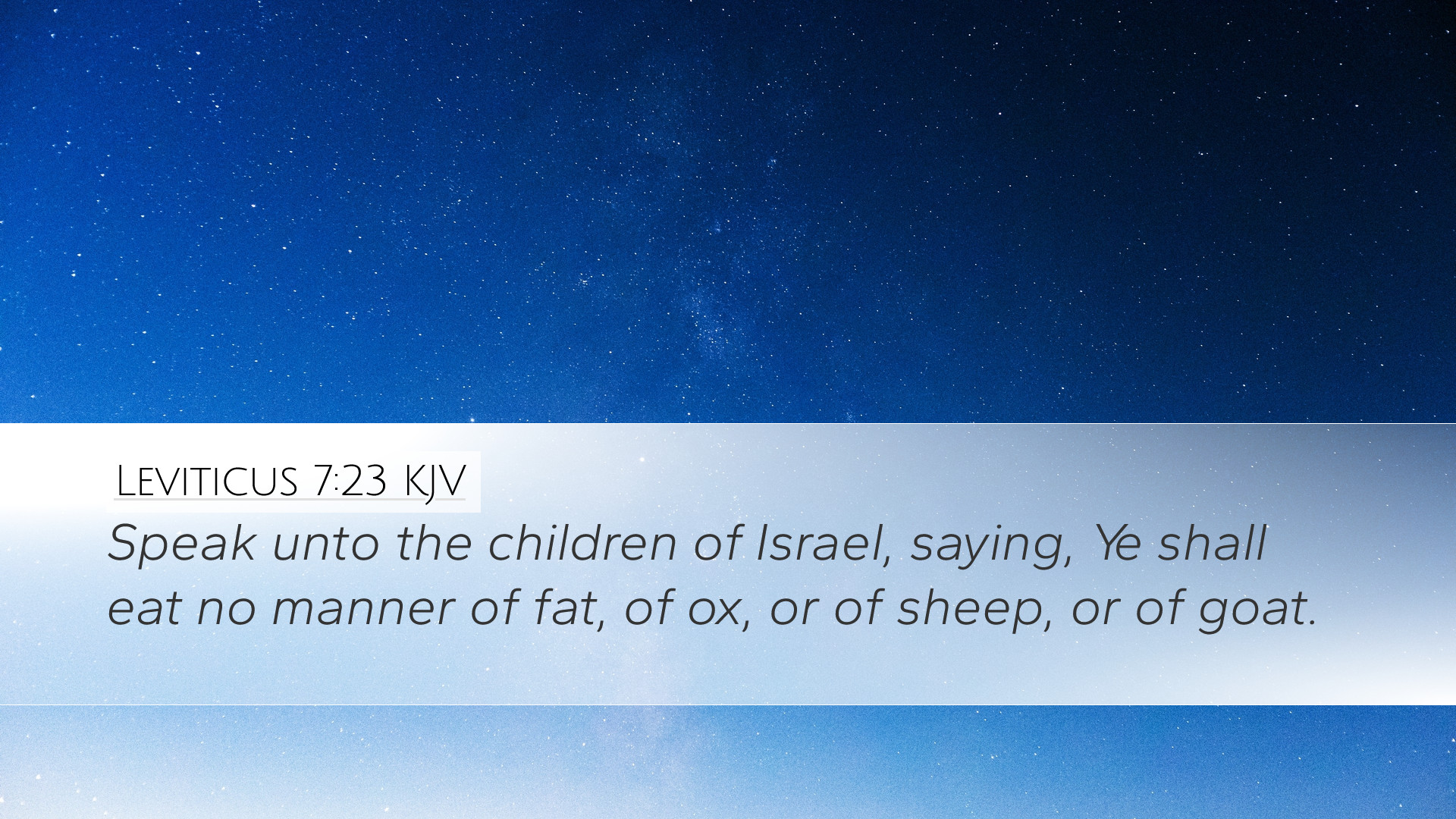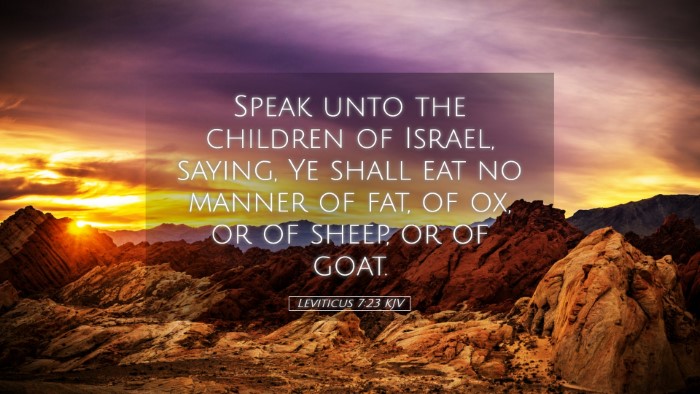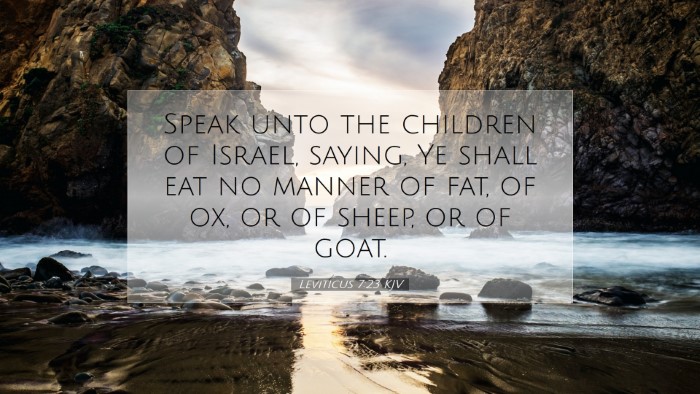Commentary on Leviticus 7:23
Leviticus 7:23: "Speak unto the children of Israel, saying, Ye shall eat no manner of fat, of ox, or of sheep, or of goat."
Introduction
The prohibition of consuming fat in Leviticus 7:23 serves multiple theological and ceremonial purposes within the broader context of the Mosaic Law. This verse encapsulates key elements of ritual purity, divine worship, and the health regulations that were significant for the Israelites as they established their identity as a holy nation unto God.
Historical Context
In the ancient Near East, offerings and sacrifices were central to various religious practices. The Israelites, being set apart by God's covenant, were instructed to conduct their sacrificial rites distinctly. The reference to fat in sacrifices carries weight, given the fat was viewed as the best part of the animal and thus due to God alone.
The Significance of Fat in Sacrifices
Matthew Henry notes that fat was often the most desirable part of the animal, which reflects God's claim over the best offerings. This act of denial was not merely dietary regulation but an acknowledgment of God's sovereignty.
Albert Barnes suggests that the prohibition extended beyond mere dietary laws; it symbolized the surrendering of personal desires in worship, placing the communal and divine aspects of the sacrificial system at the forefront of the Israelite spiritual experience.
Theological Implications
Theologically, this verse asserts the notion of holiness being integral to the Israelite lifestyle. Adam Clarke emphasizes that by forbidding the consumption of fat, God reiterated His holiness and the distinctiveness of His people. The act of obedience to such a law would manifest in the formation of a spiritually disciplined community.
Furthermore, the prohibition against fat consumption serves to remind believers of the cost of sin and the ultimate sacrifice Christ made on the cross, another aspect that shows the continuity of holiness from the sacrificial system of the Old Testament to the atoning work of Jesus in the New Testament.
Interpreting the Law for Contemporary Believers
For modern readers, particularly pastors and theologians, Leviticus 7:23 serves as an important psychological and spiritual reminder of the consecration of offerings to God. While the dietary laws are not directly applicable, the principles behind them endure. The call to surrender the “fat” or best parts of one’s life to God remains highly relevant.
Application: The focus on what constitutes acceptable offerings and the nature of our worship are crucial for today's church. Reflecting on what we consider 'fat' in our lives can aid in devotion and service to God. This can include our time, resources, and talents, paralleling the historical significance of sacrifices.
Conclusion
In conclusion, Leviticus 7:23 conveys a multifaceted understanding of divine expectation and human responsibility. The comments from Matthew Henry, Albert Barnes, and Adam Clarke converge to present a cohesive picture of how God’s laws were designed to sanctify Israel and how they still impart timeless principles for sanctity and devotion in the lives of believers today. As we contemplate the depths of these commands, may we continually strive to reflect the holiness that our God demands and deserves.


